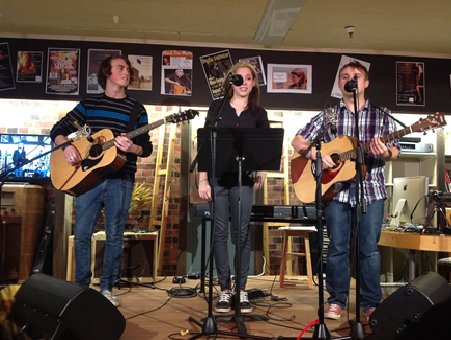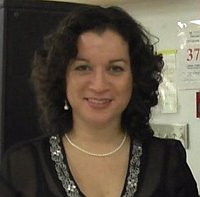I spent a two year period abroad in Hong Kong teaching music in a semi subsidized international school (Lorway, 2010). The truly fascinating part is what happened to me as a teacher after I returned to my country of origin into my position at an IB international school on the east coast of Canada.
After re-entry, I became more aware of how young people deploy music to give voice to their beliefs and opinions about school and society in ways that can shape their school lives. When I re-entered Canada, I began to pursue a PhD program in Educational Studies at the University of Prince Edward Island, in an effort to critically examine practices in music education in public school settings which might assist young people to enhance those musical processes I believed to be already in place in their lives in and outside school.
I found that extensive research has been conducted examining the value of music education for students in public schools and possibilities for processes drawn from popular musicians to inform pedagogy for music educators (Cavicchi, 2009; Campbell, Connell, & Beegle, 2007; O’Neill, 2005; Green, 2008). As far back as seventeen years ago in my career in Canada, I became interested in the music making of young people in largely informal settings which appeared to be undisturbed by adults.
Similarly, when I taught music in Hong Kong about eight years ago, I observed how vital it was for students to continue the development of more independent learning through music making in school. In both Canada and Hong Kong, the young people with whom I worked embodied music much differently from how I had been taught in my Western music education pedagogy courses. How could I reflect such differences in my own teaching?
As part of my research project at the University of Prince Edward Island, Canada, we developed an after-school song writing club in which we aimed to create music based upon the experiences, personal cultures, and preferences of the students. Once a week the group meets for two hours after school to write songs and plan performances to showcase their work to the general public. The students develop arrangements of cover songs written by various artists, as well as writing and performing their own songs arranged individually and in groups. In order to understand the music making processes of these young people, the challenge for me as the music teacher is to assist in nurturing an environment in which the young people can develop their musical ideas, while simultaneously stepping away to avoid interfering. This is no easy task while conducting research with young people at the intersection between informal and formal learning in and outside school.

The Ocelots¹
However, I believe young people today are serious about developing new approaches in music education which are rooted in their own lives, sustainable, and can affect schools in very profound ways (Smyth, Angus, Down, & McInerney, 2008). As part of my own research, my guiding questions are: How can the beautiful musical insights created by young people in their own musical lives assist me in becoming a better collaborator; a better music teacher? Are these young people assisting me in becoming more socially conscious as a teacher? As these youthful, rich musical insights came from practices and processes students participate in their daily lives outside of school, I deduced early on that teaching and learning needed to be voiced from the perspective of young people.

Yelling in the Color Yellow²
Thinking back over my years as a music educator of vocal and instrumental music has resulted in the realization that the music making of the young people with whom I work has had a major role in shaping my own practice. Trained to conduct traditional wind band and concert choir at the secondary level has certainly not been in vain, but seems to have taken a back stand to my real job as a music educator. Assisting young people to write, arrange, record, and perform original compositions and covers of artists of their choice, reminds me that young people have moved beyond the simple acquisition of musical skill. I often wonder if these young people have a deep seated sense of social responsibility which comes to the surface in a musical environment where pedagogy is conceived as a collaboration between teacher and student (Smyth, 2011).
If so, what insights can we draw from their musical performances and music making to better inform us about practices in music education, or in other disciplines? What will our schools sound like and look like with the insertion of youthful insights into our pedagogies; informed by the expertise young people have in their own worlds which they choose to share with the school and greater community?
If voiced from the perspective of young people themselves, I believe changes in teaching and learning can be lasting, and not only a phase or fad. I believe young people can impact change in public schools through music. At least, this is what I am hearing in an IB world school in eastern Canada…
 Verne Lorway is a music educator currently employed with the Cape Breton-Victoria Regional School Board in Nova Scotia, Canada, and a PhD Candidate in Educational Studies at the University of Prince Edward Island, Canada. Her work examines the development of youth agency and social justice frameworks through music making in educational contexts. You can reach Verne at musictransforms@gmail.com
Verne Lorway is a music educator currently employed with the Cape Breton-Victoria Regional School Board in Nova Scotia, Canada, and a PhD Candidate in Educational Studies at the University of Prince Edward Island, Canada. Her work examines the development of youth agency and social justice frameworks through music making in educational contexts. You can reach Verne at musictransforms@gmail.com
Notes
1 and 2: These photos have been approved by the students and their parents for scholarly purposes through the University of Prince Edward Island Research Ethics Board and the Cape Breton-Victoria Regional School Board.
References
Campbell, P., Connell, C., & Beegle, A. (2007). Adolescents’ expressed meaning of music in and out of school. Journal of Research in Music Education, 55(3), 220–236.
Cavicchi, D. (2009). My music, their music, and the irrelevance of music education. In T.A. Regelski & J.T. Gates (Eds.), Music education for changing times: Guiding visions for practice (pp. 97-107). New York: Springer.
Green, L. (2008). Music, informal learning and the school: A new classroom pedagogy. Hampshire: Ashgate.
Lorway, V. (2010). Revelations of a Canadian arts educator in the Far East. Retrieved from: http://teachmag.com/archives/1095
O’Neill, S.A. (2005). Youth music engagements in diverse contexts. In J.L. Mahoney, R.W. Larson, & J.S. Eccles (Eds.), Organized activities as contexts of development: Extracurricular activities, after-school and community programs (pp. 255-273). New Jersey: Taylor & Francis.
Smyth, J. (2011). Critical pedagogy for social justice. New York: Continuum.
Smyth, J., Angus, L., Down, B., & McInerney, P. (2008). Critically engaged learning: Connecting to young lives. New York: Peter Lang Publishing.




